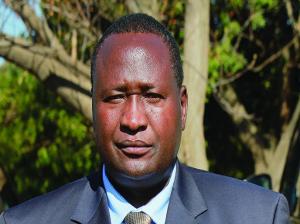Judge defies South African ruling on Adultery damages

High court judge, Justice Hlekani Mwayera has ruled that adultery damages are a legal claim meant to protect the sanctity of marriage and they remain part of our laws, a direct challenge to the status in neighbouring South Africa.
Last year,South African courts outlawed adultery damages, a decision that was celebrated by Zimbabweans.
Dismissing a constitutional application by a Harare nurse who was contesting a suit against a third party over the breakdown of a marriage, Justice Hlekani Mwayera said decisions of the South African court or other foreign courts to declare such damages unconstitutional were not binding on Zimbabwe.
Justice Mwayera said in terms of Zimbabwean policy and values, adultery remains wrongful and the claim for damages was justified as it serves to compensate the injured party.
Ms Lorraine Matione, a nurse at Harare Central Hospital, wanted adultery to be abolished saying it violated the third party's rights to privacy and equality before the law.
The nurse is accused of knowingly having an adulterous affair with Mr Lawrence Muzvondiwa that resulted in the birth of a son.
Harare lawyer Mr Nyasha Munyuru of Muvingi and Mugadza law firm, on behalf of Mr Muzvondiwa's wife, Ms Georgina Njodzi, issued out summons claiming adultery damages to the tune of $25 000 from Ms Matione.
In the middle of the adultery hearing, Ms Matione, through her lawyer Mr Wellington Pasipanodya of Manase & Manase Legal Practitioners, raised constitutional issues.
Justice Mwayera said there was nothing unconstitutional about adultery damages.
"The marriage institution is founded upon morals and the Constitution, which is the supreme law of the country that protects the very morality, underpinned relationship," ruled Justice Mwayera.
"Intrusion in the marriage institution by adultery therefore remains wrongful and there is nothing unconstitutional about an adultery damages claim," he said.
"Accordingly, it is ordered that the application to have adultery damages claim declared unconstitutional is dismissed with costs. The plaintiff's claim for adultery damages is properly before the court," said Justice Mwayera.
He said while a person could not sue his or her spouse at law, the third party or intruder must not get away with an offence.
"Whereas the innocent party cannot sue their spouse for adultery for the obvious reason they also have an option to divorce or condone and move on, the fundamental question is what should happen to the third party who would have intruded?
"It is the law which ought to retain a legal outlet to the aggrieved spouse," he said.
"The third party who, with knowledge, intrudes into the marriage institution, ought to compensate the innocent spouse for the injury occasioned," said Justice Mwayera.
"It goes without saying that adultery is almost always debilitating for the victimised spouse who suffers indignity and hurt because of the adultery."
Justice Mwayera said foreign judgments on adultery had no binding force because the issue must be analysed in the Zimbabwean context.
"Whereas it is important to take note and appreciate what is going on in other jurisdictions, it is of paramount importance to apply the principle in the context of our nation as a constitutional democracy," he said.
Added Justice Mwayera: "It is my considered view that the society which was involved in the constitution-making process still views adultery negatively.
"The legal convictions of our society have not changed so much that adultery could objectively be regarded as reasonable and thus it remains unlawful. The Zimbabwean Constitution and subservient laws still permit redress by claims for adultery damages."
During the hearing, Mr Pasipanodya submitted that having an affair with a married man was not legally wrong but only wrong on moral grounds. He said it was the duty of the married couples to protect and safeguard their unions and not third parties.
- internet
You May Like These Videos
Comments
There are no comments.
Get Zim Metro Updates Alerts
Big Reads

Schoolgirl drops out after continuous 'sexual abuse' by teacher
by Staff Reporter | 2019 August 13 07:42:33
Mugabe Knows Nothing About The Zimbabwe Constitution: MP
by Staff Reporter | 2016 October 01 08:12:02
Zim's Protesting Graduates Risk Losing Degrees For Expressing Anger Against Mugabe
by Staff Reporter | 2016 October 01 07:57:08
Troubled Harare Giants Dynamos Falls Into Another Deep Crisis
by Own Correspondent | 2016 October 01 07:49:17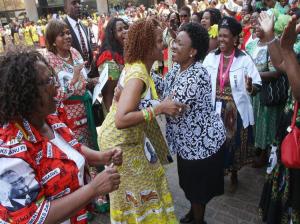
Grace Mugabe Grovels At Mnangagwa, Says I Did Not Ask Ubaba To Fire You
by Staff Reporter | 2016 October 01 07:31:48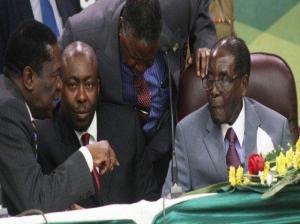
Mugabe Attacks Mawarire, Claims The Exiled Pastor Failed To Divide Zimbabwe
by Staff Reporter | 2016 October 01 07:19:13
Shock As Local Bank Denies 'Rich' Mugabe's Son Heifty Credit
by Own Correspondent | 2016 September 30 19:14:54
Trouble For Police Officers Who Have Been Mercilessly Bludgeoning Protesters
by Staff Reporter | 2016 October 01 07:20:19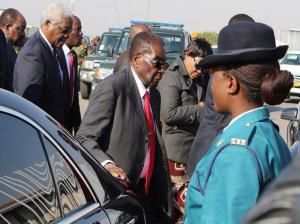
Mugabe "Home Coming" And "Thank You" Rally On Cards
by Own Correspondent | 2016 September 23 06:48:24
Prof Moyo Was Dumped By Western Embassies, Claims Mutsvangwa
by Staff Reporter | 2016 September 22 10:08:07
Broke RBZ Tracks Down Zimbabweans Living Outside The Country Over Taxi
by Staff Reporter | 2016 September 22 09:16:20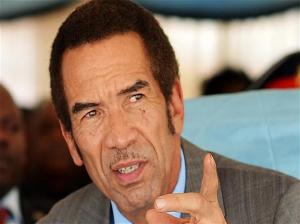
You Are Too Old To Lead, Aging Zim President Mugabe Told
by Own Correspondent | 2016 September 22 07:19:25
Anti-Corruption Commission Loses Property In Failed Probe
by Own Correspondent | 2016 September 20 03:18:19
SHOCKING:14 Year Old HIV-Positive Boy Rapes 7 Pupils
by Own Correspondent | 2016 September 20 00:04:55

 WATCH: Victims Narrate Ordeal After Being Clobbered By Riot Cops
WATCH: Victims Narrate Ordeal After Being Clobbered By Riot Cops FLASHBACK: Morgan Tsvangirai Won't Resign Despite Illness
FLASHBACK: Morgan Tsvangirai Won't Resign Despite Illness  Police Violently Beat Harare Protesters
Police Violently Beat Harare Protesters  Zimbabwean Man Who Was Shot By Tswana Employer Appeals For Help
Zimbabwean Man Who Was Shot By Tswana Employer Appeals For Help











.jpg)




